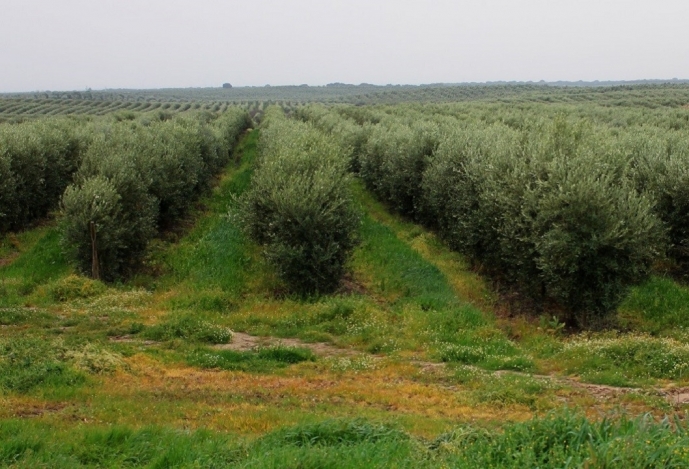New paper from BIOPOLIS/CIBIO-InBIO researchers unveils the effects of olive farming intensification on wintering bird communities

The intensification of olive farming and its potential effects on biodiversity is a polemic topic that has recently attracted a lot of public interest due to reports of bird killings during night harvest in Southern Portugal’s super-intensive systems. However, and surprisingly, there is still very few information on the occurrence and abundance patterns of birds in these new systems along the annual agricultural cycle. In one first study addressing these issues, that was released last year, BIOPOLIS/CIBIO-InBIO researchers found that the intensification process and particularly the shift towards super-intensive systems was associated to a reshaping and significant simplification of the local breeding bird community, which tended to be dominated by generalist granivores. But the effects of these systems on the important bird communities that use Mediterranean olive orchards during the winter, that include millions of frugivorous birds coming from Central and Northern Europe remained largely unknown.
A new study, recently published in the Journal of Applied Ecology, tackles this research gap by investigating the effects of olive farming intensification on the occurrence and abundance patterns of wintering birds, through the analysis of information recorded on 78 olive orchards (26 of each intensification level – traditional, intensive and super-intensive) across the Alentejo region (Southern Portugal) during the winter of 2016/17. The authors show that although intensive and super-intensive olive groves have a negative effect on the wider wintering bird community (similar to what was found during Spring), they can also contribute to sustain significant numbers of frugivorous wintering birds due to their higher olive availability. Given these results the authors recommend that efforts to manage farmland biodiversity in these intensive systems should consider not only their environmental impacts and risks but also their conservation opportunities.
To access the full article please click here
A new study, recently published in the Journal of Applied Ecology, tackles this research gap by investigating the effects of olive farming intensification on the occurrence and abundance patterns of wintering birds, through the analysis of information recorded on 78 olive orchards (26 of each intensification level – traditional, intensive and super-intensive) across the Alentejo region (Southern Portugal) during the winter of 2016/17. The authors show that although intensive and super-intensive olive groves have a negative effect on the wider wintering bird community (similar to what was found during Spring), they can also contribute to sustain significant numbers of frugivorous wintering birds due to their higher olive availability. Given these results the authors recommend that efforts to manage farmland biodiversity in these intensive systems should consider not only their environmental impacts and risks but also their conservation opportunities.
To access the full article please click here